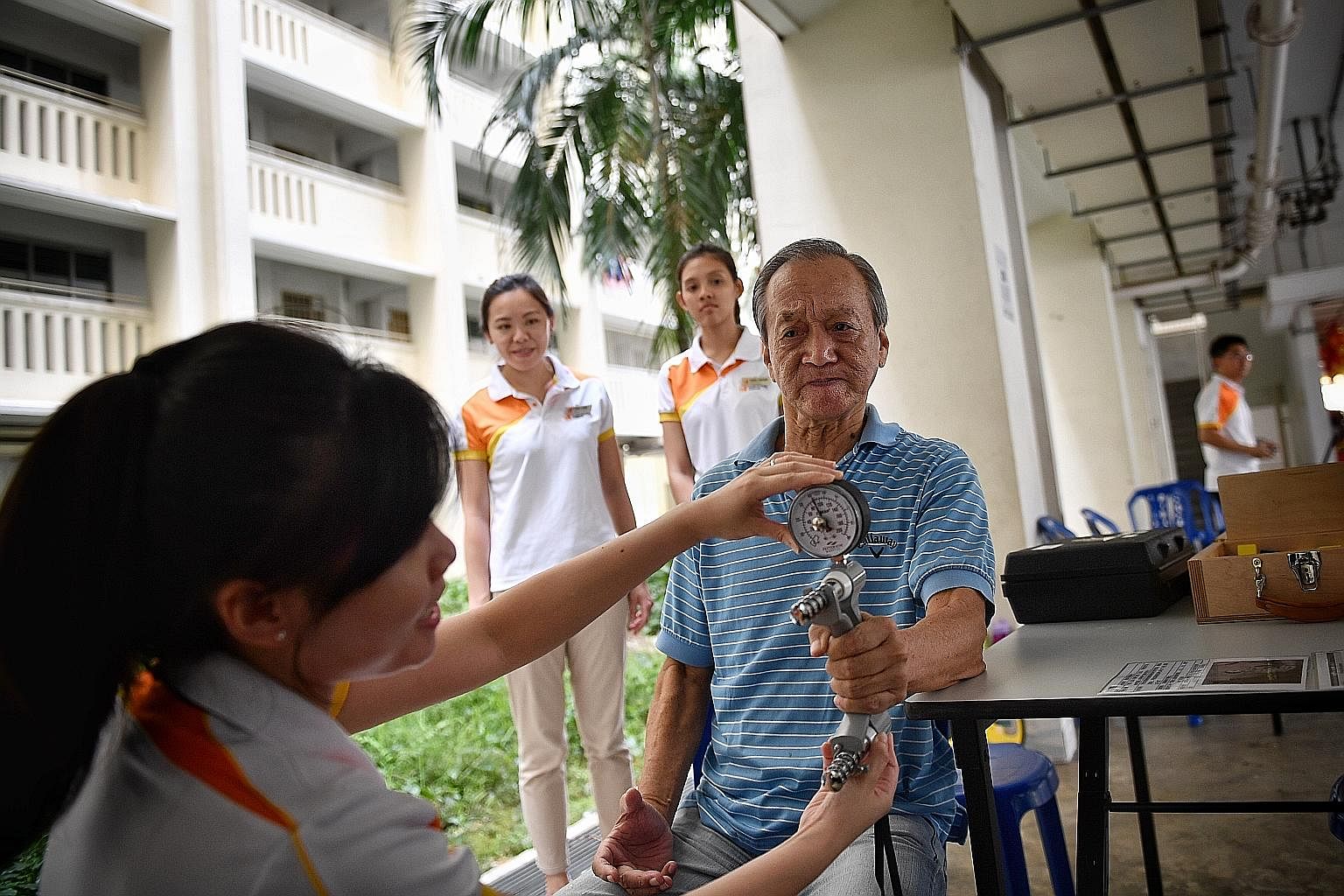If getting grandma to run 2.4km is out of the question, get her to try the 10m walk instead.
A team of local experts has come up with an "IPPT" for seniors, similar to the Individual Physical Proficiency Test for the uniformed services.
Called IPPT-S, or IPPT for Seniors, the test has nine stations - to measure flexibility, strength and balance. These include a modified sit and reach, as well as grip strength and walking tests.
The set of tests is being used as a screening tool to pick up frail, elderly people before health crises, such as falls, land them in hospital.
It was developed by a team of doctors and allied health professionals from Singapore General Hospital and Sengkang General Hospital.
As people age, their bodies deteriorate and become more frail, said Associate Professor Ng Yee Sien, who is a rehabilitation physician at both hospitals.
This may manifest as feelings of weakness or exhaustion, or even significant weight loss over the course of a year. "But the progression is very subtle and hard to pick up," Prof Ng said. "It's difficult to recognise until the occurrence of a crisis."

Often, this results in the person being admitted to hospital. It can be a long time before he returns to full health.
Prof Ng and his team hope to avoid this by working with grassroots organisations - such as senior activity centres - to carry out the screening test for seniors who are still relatively healthy.
Those who take part must also complete a questionnaire to assess elements such as their nutritional status and quality of life.
The test will be made available to those who are 55 and above, can walk on their own, and pass a separate pre-screening assessment.
The team conducted a pilot in June and July involving around 100 people in Sengkang. It hopes to reach at least 2,000 seniors over the next three years.
One of those who have already taken the test is Mr Loy See Wee, 68, who passed all nine stations with flying colours.
Said the retiree, who runs every day: "I did as much as I could (during the test). I realised that I don't have enough muscle (strength) because I train only for stamina and don't carry weights."
He added that he would work on this by doing chin-ups or push-ups.

